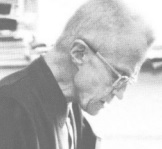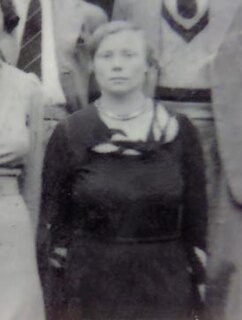
Ludwig Josef Johann Wittgenstein was an Austrian-British philosopher who worked primarily in logic, the philosophy of mathematics, the philosophy of mind, and the philosophy of language. He is considered by some to be the greatest philosopher of the 20th century.

Analytic philosophy is a branch and tradition of philosophy using analysis, popular in the Western world and particularly the Anglosphere, which began around the turn of the 20th century in the contemporary era in the United Kingdom, United States, Canada, Australia, New Zealand, and Scandinavia, and continues today. There is, however, no clear distinction between continental and analytical philosophy.
Sir Anthony John Patrick Kenny is a British philosopher whose interests lie in the philosophy of mind, ancient and scholastic philosophy, the philosophy of religion, and the philosophy of Wittgenstein of whose literary estate he is an executor. With Peter Geach, he has made a significant contribution to analytical Thomism, a movement whose aim is to present the thought of St. Thomas Aquinas in the style of analytic philosophy. He is a former president of the British Academy and the Royal Institute of Philosophy.

Gertrude Elizabeth Margaret Anscombe, usually cited as G. E. M. Anscombe or Elizabeth Anscombe, was a British analytic philosopher. She wrote on the philosophy of mind, philosophy of action, philosophical logic, philosophy of language, and ethics. She was a prominent figure of analytical Thomism, a Fellow of Somerville College, Oxford and Professor of Philosophy at the University of Cambridge.

Anthony Clifford Grayling is a British philosopher and author. He was born in Northern Rhodesia and spent most of his childhood there and in Nyasaland. In 2011 he founded and became the first Master of New College of the Humanities, an independent undergraduate college in London. Until June 2011, he was Professor of Philosophy at Birkbeck, University of London, where he taught from 1991. He is also a supernumerary fellow of St Anne's College, Oxford, where he formerly taught.
Arthur John Terence Dibben Wisdom, usually cited as John Wisdom, was a leading British philosopher considered to be an ordinary language philosopher, a philosopher of mind and a metaphysician. He was influenced by G.E. Moore, Ludwig Wittgenstein and Sigmund Freud, and in turn explained and extended their work.
Richard Bevan Braithwaite was an English philosopher who specialized in the philosophy of science, ethics, and the philosophy of religion.
Andrew Pyle is a British philosopher on the history of philosophical atomism.

Horace Romano "Rom" Harré, was a New Zealand-British philosopher and psychologist.

Rush Rhees was an American philosopher. He is principally known as a student, friend, and literary executor of the philosopher Ludwig Wittgenstein. With G. E. M. Anscombe he was co-editor of Wittgenstein's posthumous Philosophical Investigations (1953), and, with Anscombe and G. H. von Wright, he co-edited Wittgenstein's Remarks on the Foundations of Mathematics (1956). He was solely responsible for the editing of Philosophical Grammar (1974) and Philosophical Remarks (1975). Rhees taught philosophy at Swansea University from 1940 until 1966, when he took early retirement to devote more time to editing Wittgenstein's works.

John Niemeyer Findlay, usually cited as J. N. Findlay, was a South African philosopher.
Dorothy Mary Emmet was a British philosopher and head of Manchester University's philosophy department for over twenty years. With Margaret Masterman and Richard Braithwaite she was a founder member of the Epiphany Philosophers. She was the doctoral advisor of Alasdair MacIntyre and Robert Austin Markus.
Nicholas J. Wade is a British psychologist and academic. He is an emeritus professor in the psychology department of the University of Dundee in Scotland, and the author of books and technical articles. His work has focused on visual perception.
Oliver Chase Quick was an English theologian, philosopher, and Anglican priest.
Isaac Woodbridge Riley was an American academic scholar who worked in and across the areas of philosophy, religion, and psychology. His published work often combined two of these disciplines in considering the historical development of a social movement or entity, particularly examining the influence of the founders' psychological character. His books concerning the foundation and moral standing of Mormonism and Christian Science made him a focus of controversy. Most of his career was spent as a professor of philosophy at Vassar College.
Austin Ernest Duncan-Jones was a British philosopher, with a primary focus on meta-ethics. He was Professor of Philosophy at the University of Birmingham from 1951 until his death. He was president of the Aristotelian Society for 1960-61.
May Brodbeck was an American philosopher of science.

Margaret MacDonald was a British analytic philosopher. She worked in the areas of philosophy of language, political philosophy and aesthetics.
Richard Dean was an English Anglican minister and early animal rights writer.
Positioning theory is a theory in social psychology that characterizes interactions between individuals. "Position" can be defined as an alterable collection of beliefs of an individual with regards to their rights, duties and obligations. "Positioning" is the mechanism through which roles are assigned or denied, either to oneself or others. The theory describes malleable roles and storylines that determine the boundaries of future acts and the meanings of what people say and do. The theory expands upon the work of psychologist Lev Vygotsky, especially his theory of zone of proximal development (ZPD). It emphasizes the interdependence of positions, speech and other acts, and storylines that arise from them; a change in any one aspect affects the other two. The theory provides a framework to understand a person's specific behavior by considering social, individual, and moral factors.







